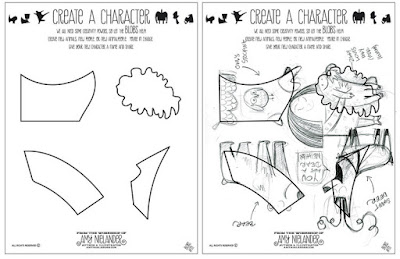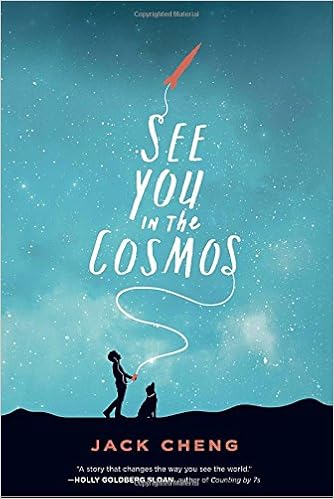Writer Spotlight: Gin Price
OK, gotta get the uncomfortable stuff out of the way first. You go by Gin, and that’s the only way your name appears in social media, so that’s obviously who you are. Why?
It’s funny how often I’m asked if Gin Price is my real name or my pen name. I answer yes to both questions because both are true-ish. Gin is part of my birth name which almost no one can pronounce correctly first try. And as for Price, I met a man once, who loaned me his last name for a time. It’s a solid last name, with a nice consonant, so the real questions is, why not?
How did your early life prove formative in creating the author you are today?
I had some interesting experiences as a child in Metro Detroit. One side of my family was steeped in law enforcement, and the other side, breaking the law. I grew up in a gray area. In my writing I spend a lot of time in that hue.
You mentioned in another interview that the sixth grade was a pivotal time for your writing. Why was that?
There were a lot of changes going on in my life at that young age. My parents were divorced, dad stopped showing up, we lived on a corner house where it was easy for boys to jump my fence and try to stare into my windows. I was a very anxious kid, and every night I would truly believe I was going to die soon. Making up stories became a coping device. Instead of being scared, I could write myself as a hero. I think I still write best when I’m down.
In that same interview, you said you ruined “several diaries” (I believe they were Hello Kitty brand) in the pursuit of writing excellence. Care to explain?
 |
| Example. Not the real thing. |
It all started with a pretty diary, but nothing I wanted to fill it with at the age of 10. So like all great misguided story-tellers, I lied. I created stories of events I wished would happen and filled pages after pages with dreams. I still have some of these ruined diaries to this day. Though in hindsight, V.D. would make a horrible romance story title. Sorry Little Gin.
In a blog post you admitted that you “learn differently, so the writing process can be a struggle.” Yet you succeeded in publishing a YA novel and winning the SCBWI-MI writing competition. How did you find a way around your challenges?
Yeah. I have a really hard time reading textbooks and comprehending their lessons. Always have. I get intimidated by grammatical rules, especially when they contradict weird things I was told at a young age. For example, commas. I was once told that whenever you pause or take a breath, you should use a comma. That misguided advice has led me down a path of hell. I comma when I shouldn’t, I don’t when I should. I get wrecked by the comma rules. Also I most definitely can’t tell you what grammatical term defines a particular rule with confidence.
When I hit 15 I became a book sponge. I read. A lot. And when I wrote, I mocked the style and structure of books I’d read. Over time I learned some things, but in all honesty, I bring the creativity, and I depend a lot on my agent and editor to tell me if I’ve really screwed something up. If I ever learn how to correctly use a semicolon, there will be a parade. Maybe we’ll toss cupcakes in the shape of a comma.
How did your writing develop after that sixth grade revelation?
Actually it didn’t. After all the writing during troubled times, I stopped for three years and went back to writing only about boys and how many of them I loved that week. It wasn’t until I was out of high school that I started taking writing seriously again.
You’ve written in other genres besides YA. What other areas have you explored?
I’ve been published in Romance under a different pen name. As a mother of three children, 2 very young boys, I’ve dabbled in Picture Book ideas and I’m out on submission, hat in hand. I also have two really cool series ideas that I think will only work as MG, but as I haven’t read many of them, I feel I need to familiarize myself with the genre before attempting to write for it.
You published your first novel On Edge: A Freerunner Mystery with Poisoned Pencil Press on February 2, 2016. How did that come about?
It took nearly 2 years to find a home for On Edge. Though when it was on submission it was called “Tagged”. No one really knew what parkour/freerunning was, and writing about graffiti, which is oftentimes viewed as illegal art, was a bit of a hard sell. My agent really kept on it, never giving up even when I was ready to throw in the towel. I’ll always be grateful to her for that.
When did you find SCBWI? How?
As I mentioned before, I was a romance writer. After finding my first agent, I was struck with this idea for a YA and I just wrote for three solid months and finished it. All the other cross-over authors at the romance meeting talked about SCBWI, so I gave it a shot. Both groups have helped me not only improve my craft, but given me a platform with which to promote myself and my works. It’s been amazing.
On Edge focuses on graffitti and parkour (freerunning), “two expressions dear to my heart”. How do you relate to these urban art forms? They are completely misunderstood and oftentimes abused. Graffiti IS art. I’m not talking about the punk with a spray can devaluing his/her ex’s car. I’m talking about the mad skills involved in throwing up a clean line. The angles, the colors, the expressions, hell, even the placement of this style of art is a thing of beauty.
Parkour is different but still an expression. It is defined by the journey, and sometimes that journey is a little less expression and a little more trespassing, but it is still a stunning show of what the human body is capable of.
You currently live in Detroit, your writing “steeped in street life, whether good or bad.” You’ve found inspiration in “all the excellent material city living has provided”. Some examples on how Detroit has shaped your life and your work?
I currently live in Metro Detroit, which is an important distinction because it’s been a long time since I’ve felt a part of the real life that happens outside of downtown. I can’t speak for how bad or good those streets are now, only what I remember them to be, but with a respect of what they have become. Growing up with my eyes wide and alert created an acceptance of diversity on all fronts of humanity. We are all wonderfully different on the outside with life paths that make us unique on the in. I don’t have to spend so much time trying to reflect on human differences to create real characters. People just are who they are. I grew up seeing that, living that, and loving that.
On Edge plays like an updated West Side Story or urban Romeo and Juliet. Two high schools are merged into one, and rival gangs collide. Emanuella “LL” is attracted to graffitti artist Haze, but they try to keep their romance on the down low so as not to incite war. But when portraits of “LL” in Haze’s unique style start popping up, tensions boil over. Finally, here’s the question: Did real life events inspire you?
 |
| Snitch the tarantula |
Yes. Years ago I was watching the news about a shooting that took place outside a school. When I did a little research I saw that the motive for the shooting was territory dispute and the underlying cause was because one school had been forced by closure to merge with its rival. I was horrified. No one took that into consideration and those kids died for it.
You’ve had two agents and tried different kinds of publishing. What have you learned from your experiences?
On the agent front, I learned that an acceptance can lead to temporary blindness. Know what kind of experience you want and find the person who can give it to you. On the publishing front, I’ve learned that self-publishing has its good and bad sides, like everything else, and you really need to figure out who you are writing for. Self-publishing can be a compromise on your dream, a short-cut avoiding editorial skill or an exercise in vanity if you’re not careful. I speak from experience. :) Traditional publishing requires a different type of self-discipline regarding timelines, a compromise in creativity versus marketability, and editorial skill. And it is awfully subjective. You could potentially write great stories your whole life and never find the right agent or editor. This is where self-publishing becomes the hero. However, there is something to be said for a publishing house paying you money upfront to put your book out there. That is a sense of gratification exclusive to traditional publishing. But both styles can be equally successful.
You’ve mentioned a sequel to On Edge. Where does that stand?
On my shoulders, pushing down...hard. On Edge was originally written as a stand-alone. My editor wanted me to try to make it a series and after four ‘nahs’ I’m hoping this fifth try is a resounding ‘yeah’, as it is my favorite attempt yet. :) Wish me luck.
You’ve got three children, a biologist partner, an ornery cat, and “many reptiles”. Tell us about the menagerie at your house.
 |
| Winnebago the tortoise |
We are a family of naturalists. With David being a zookeeper, and my history dotted with animal rescue, volunteer work, and a stint as a naturalist guide for children, it’s only a matter of time before our house becomes more jungle than human habitat. Since the interview you’re referencing, we have an additional 10 frogs and a tarantula named Snitch to go with our reptiles.
On your FB page you claim to be able to carve an hour a day out of your crazy schedule to write. How do you make it happen?
Magic. Or possibly Pocoyo. (My oldest son’s favorite.)
What are you working on now?
I’m working on book two, obv. I also have two other YA novels working, one is a quarter of the way through, the second is still in the plotting stage, but I’m excited about it too. I have two MG books in my brain wanting out and I’ve recently written seven picture books with more I’d like to get out but alas...that hour goes by too damn fast.
 |
| Gin Price |
Gin Price recently won the 2018 SCBWI-MI writing competition. She lives in the Detroit area . Find her at http://authorginprice.com, on twitter @Gin_Price, or on Facebook.
 |
| Ruth and Charlie |
Charlie Barshaw asks too many questions, and then doesn't want to edit any of them out of his interviews. He is still learning how to manipulate Blogger. He is co-chair with Anita Pazner of the May 5 Humor Conference in Detroit.



























